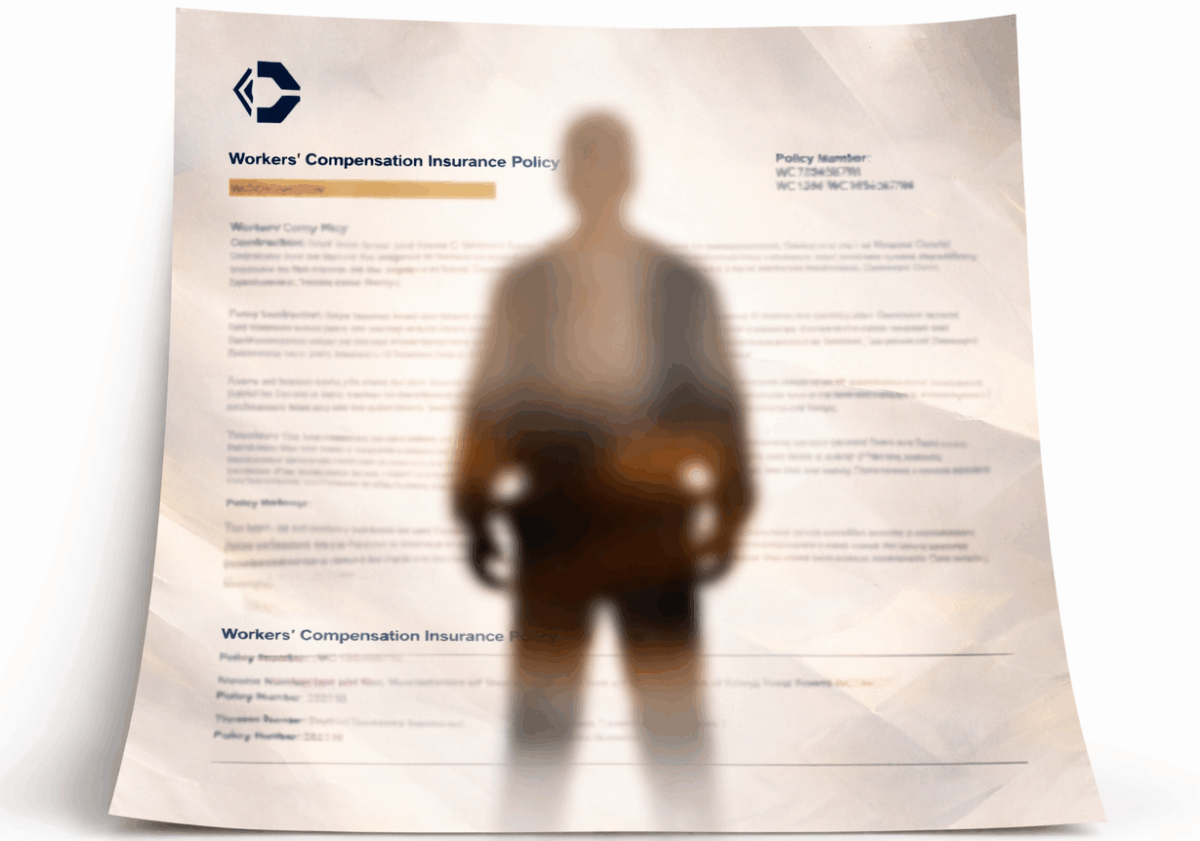A ghost policy is a workers compensation insurance policy for businesses with no employees, where the owner chooses to exclude themselves from coverage. The policy still provides a Certificate of Insurance, or COI, which many job sites and contracts require. It does not provide medical or wage benefits if the owner is injured. Ghost policies are not available everywhere. Some states allow them for owner-only businesses, while others restrict or prohibit them. Eligibility often depends on your business structure and state law.
If you run a one-person operation, you may see ghost policies marketed as a simple, low-cost option. To understand whether they make sense for your situation, it helps to look at how these policies work and where they are allowed.
What a Ghost Policy Is and How It Works
A ghost policy is a limited workers compensation policy created for businesses with no employees. Its purpose is mainly to provide documentation, such as a COI, rather than actual injury coverage. In many states, only sole proprietors or business partners are allowed to legally exclude themselves from workers compensation benefits.
State rules vary widely. Some states permit ghost policies under certain conditions, including:
• Alabama
• Florida
• Georgia
• Illinois
• North Carolina1
• South Carolina
• Virginia
• Washington
• West Virginia
Other states do not allow ghost policies at all, including:
• California2
• Colorado
Because these rules differ from state to state, and eligibility often depends on how your business is structured, whether you can purchase a ghost policy depends on both your location and your type of business.
Here is the simple version:
• You exclude yourself from workers compensation benefits
• The insurer still issues a COI for compliance
• You meet contract or state requirements
• You have no coverage for medical bills or lost wages
• Anyone you bring on, even temporarily, is not covered
It looks like traditional coverage on paper, but when something goes wrong, there is no real protection behind it.
Who Typically Uses a Ghost Policy and Why
You will most often see ghost policies used by:
• Independent contractors and tradespeople
• Sole proprietors with no employees
• Subcontractors who need a COI to work under a general contractor
For these business owners, a ghost policy is a fast, low-cost way to meet paperwork requirements when they truly work alone and take on lower risk jobs.
The Benefits and the Limitations
Ghost policies have some advantages, but the limitations are important.
Benefits:
• Lower cost than a standard workers compensation policy
• Fast way to obtain a COI for jobs or licensing
• Simple application and approval process
Limitations:
• No coverage for your own injuries
• No coverage for anyone you hire, even for one day
• Possible out-of-pocket medical bills if an accident happens
• Some states restrict or prohibit ghost policies
• Many LLCs and corporations do not qualify because owners cannot exclude themselves
A ghost policy can satisfy a requirement, but it does not protect you financially.
When a Ghost Policy Is Not Enough
A ghost policy only works when you truly operate alone. It is not enough if:
• You hire help, subcontract work, or bring on day labor
• You work in higher risk environments such as construction
• A general contractor requires proof of full workers compensation insurance
• Your state requires actual owner coverage based on your business structure
Even having a family member help briefly can change your liability. It is very easy to outgrow a ghost policy without realizing it.
Better Alternatives to Consider
If a ghost policy does not match your situation, here are stronger choices:
Workers Compensation Insurance: Provides medical care and wage replacement for workplace injuries. Required in many states as soon as you hire anyone or bring on regular help.
General Liability Insurance: Covers third party injuries and property damage. Often required on job sites and by general contractors.
Business Owners Policy: Combines general liability, commercial property coverage, and business interruption insurance in one plan.
These options offer real protection and can grow with your business.
Is a Ghost Policy Right for You? How Gild Can Help
A ghost policy can work for a true one-person operation, but it is rarely a long-term solution. It also depends on where you live, how your business is set up, and whether you plan to grow or hire help.
Gild Insurance Agency can help you understand whether a ghost policy fits your situation or if another type of coverage will protect your time, income, and peace of mind. You can schedule a call with a Gild Agent or get a personalized quote online.
Frequently Asked Questions
What is a ghost policy?
A ghost policy is a workers compensation policy where the owner excludes themselves, which produces a COI but offers no injury coverage.
Can I hire someone if I have a ghost policy?
No. Hiring even one person for any period of time creates liability and leaves you uncovered.
Do all states allow ghost policies?
No. Some states limit or prohibit them, and eligibility often depends on your business structure.
Does a ghost policy include general liability insurance?
No. It covers only the workers compensation COI requirement. It does not include liability protection.
Who qualifies for a ghost policy?
Usually sole proprietors or partners with no employees. Many LLCs and corporations do not qualify based on state rules.




